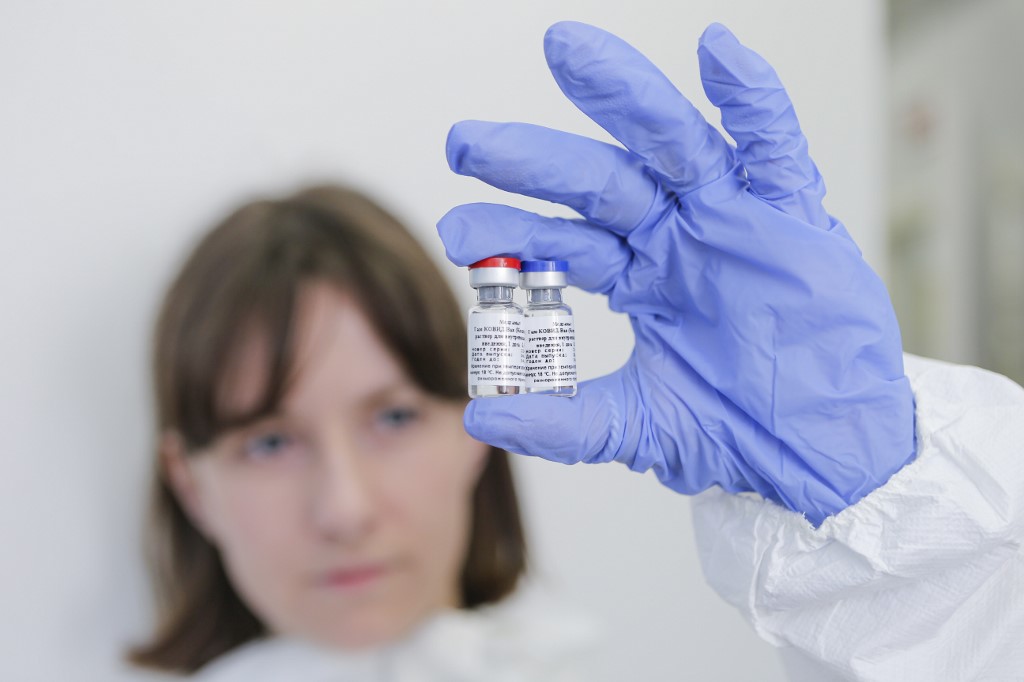(ATF) A global race is underway among vaccine makers to build a defence against the coronavirus pandemic with nations pledging billions to immunise its citizens and usher in a return to normal life and economic activity.
But a fully approved, effective vaccine may not be available until the summer of 2021, information provider Markit said on Thursday, while Deutsche Bank said there were challenges in scaling up production and distribution.
There are 30 Covid-19 vaccine candidates in various stages of clinical trials with several candidates in the pre-clinical stage as well, Markit said.
UK’s AstraZeneca, China’s Sinovac, USA’s Moderna, and two from China’s Sinopharm have entered Phase III trials, one candidate from a collaboration between Germany’s BioNTech and USA’s Pfizer in Phase II/III stage, and four in Phase II trials, plus more in Phase I/II and Phase I.
It said that a Phase I/II candidate, from the Gamaleya Institute in Russia, had received a temporary authorisation for public access on an initially limited basis in Russia, before entering Phase III trial although little is known about its efficacy at this stage.
Phase I trials aim to find the best dose of a new drug with the fewest side-effects and tests carried out on a small group of 15 to 30 patients. Phase II trials are tested on a larger group with further assessment of safety, as well as the effectiveness of the drug.
Phase III trials assess side-effects and compare a new drug to a standard-of-care drug. These determine which drug works better. Phase III trials enrol 100 or more patients.
Phase IV trials test new drugs approved by the Food and Drug Administration (in the US and elsewhere). The drug is tested in several hundreds or thousands of patients. Currently, there are no candidates in this final phase.
“The good news is that, on average, once a vaccine for an infectious disease makes it to phase-three trials, it has an 85% chance of being approved,” Deutsche Bank analysts said in a note, while pointing out that of the seven vaccines currently in phase-three trials, six could be approved. “However, we should caution that these are only the averages and no coronavirus vaccine has ever been tested or used at scale.”
HIGH STAKES
The stakes are high, as the global infection count has stopped 26 million with over 860,000 lives lost to date (and probably more). The travel restrictions, social distancing measures and other limitations in place have weighed on employment, housing and all economic parameters, forcing governments to announce billions in stimulus measures because of the dramatic impact on national economies.
The US government budget deficit will triple this year to $3.3 trillion, soaring to the largest percentage of gross domestic product since 1945, the Congressional Budget Office said. Indeed, the world’s largest economy has registered its deepest recession on record.
Last month, the World Health Organisation said there were over 170 vaccine candidates under evaluation around the world at different stages.
Even after these phases had been passed, there were risks in the shape of production challenges and product effectiveness.
According to the WHO, most routine childhood vaccines are effective on 85-95% of recipients and the US Centre for Disease Control has said the ‘flu vaccine is often effective only less than half of recipients.
And with demand dwarfing potential production capacity, the mass distribution of a vaccine will raise significant challenges.
Deutsche Bank analysts said: “First, any rapid scale-up of global production will require technology transfer. That will involve the challenge of protecting intellectual property rights. Second is the difficulty of manufacturing and delivering vaccines, particularly given the need for vaccines to be kept within a certain temperature so they don’t lose their potency or efficiency.”
























